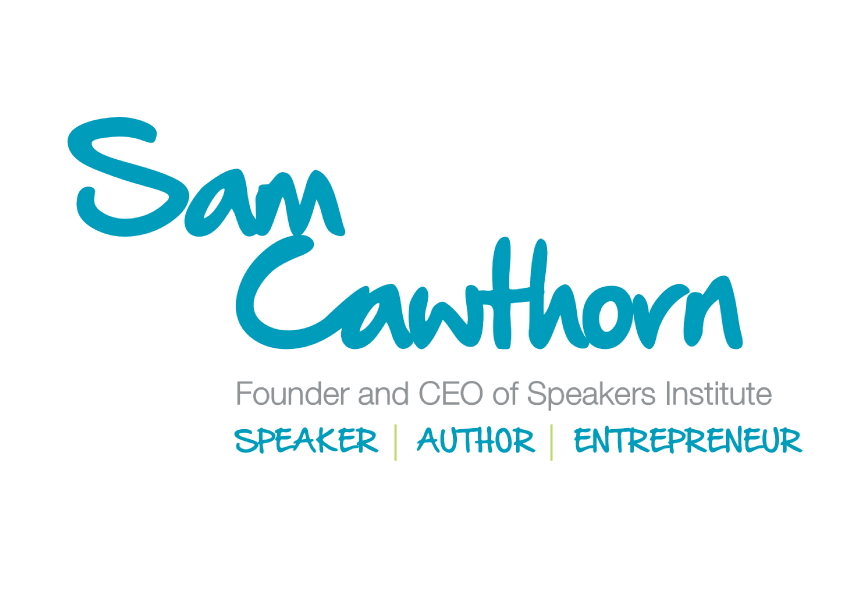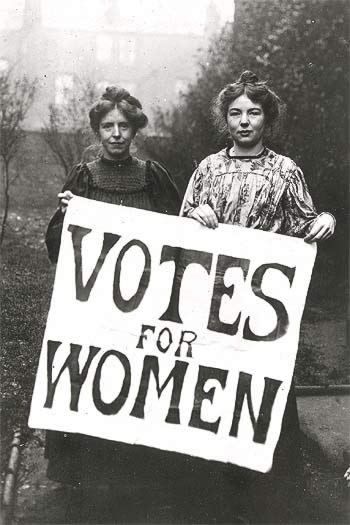On Women’s Right to Vote: How Susan B. Anthony’s Famous Speech Changed the World
Susan B. Anthony is one of the most important figures in recent history. Here’s how her most famous speech influenced the women’s rights movement and what you can learn from it.
Looking through the lens of today, it’s absolutely shocking to think about the state of women’s rights a mere 150 years ago. We’re not too far removed from the days when women couldn’t vote and were almost seen as second-class citizens.
Thankfully, we’ve come a long way since those dark days. Women’s rights have changed enormously over the last century and a half.
Still, it’s important to look back and commend the efforts of the women who fought the battles that influenced entire cultures. And when we do that, there are few more prominent names than Susan B. Anthony.
Anthony was a prominent figure in the women’s rights movement in the United States in the late 1800s. She was also an influencer whose speaking technique offers plenty of lessons that today’s storyshowers can take forward.
We’ll look at those lessons in a moment. But first, let’s talk about just how important Susan B. Anthony was.
Who Was Susan B. Anthony?
Born in 1820, Susan B. Anthony grew up in a politically active family. From a young age, she watched her parents fight to end slavery as part of the abolitionist movement. She later grew up to become a part of the Temperance Movement. This group campaigned to limit the supply and distribution of alcohol.
It was during her affiliation with this group that Anthony encountered discrimination due to her gender. She was not allowed to speak at a Temperance Movement convention because she was a woman.
She realised that women would never achieve the respect they deserved in politics if they didn’t have the right to vote.
This revelation led to her co-founding the National Woman Suffrage Association. Alongside Elizabeth Cady Stanton, she campaigned for the vote. Anthony began speaking wherever she could to gain supporters. She also engaged in several acts of rebellion that put her at odds with the laws of the time.
In 1920, the United States finally added the Nineteenth Amendment to its constitution. This gave women the right to vote. Unfortunately, Anthony had passed away 14 years prior and so never got to see her dream come true.
Nevertheless, she played a huge role in the suffrage movement. And with On Women’s Right to Vote, she gave one of the movement’s most influential speeches.
Anthony gave her speech following her arrest for casting an illegal vote in the 1872 presidential election. Here are four reasons why it was so effective.
Reason #1 – She Kept it Short
At Speakers Institute, we often show people the importance of keeping your speech short. As an influencer, you want your message to stick in the minds of your audience members. Going on a long-winded tirade isn’t going to help you do that.
People have limited attention spans and they want you to get to the point as quickly as possible. That’s more evident in the modern day. TED Talks last about 15-20 minutes and many speakers keep their stories short.
This wasn’t so much the case during Anthony’s day. Still, with On Women’s Right to Vote, she kept things short and to the point.
Anthony’s speech clocked in at just over 500 words. That meant that it took just a couple of minutes for her to hit her key threads and show her story.
She also used brevity and concise delivery during several portions of her speech:
“To them this government has no just powers derived from the consent of the governed. To them this government is not a democracy. It is not a republic.”
These short and sharp sentences get straight to the point and allow for rapid-fire delivery.
Keeping her speech short made its key threads more memorable. It also made them easier to digest and ensured she built a connection with her audience quickly.
Reason #2 – The Speech Had Passion
Politicians are well-versed in keeping emotion out of their speeches. Despite her passion for politics, Anthony had no such disposition. She approached her speech with the same passion and fire with which she approached all of her suffrage efforts.
Anthony attacked her oppressors with ferocity and made her anger clear throughout the speech. Take this passage as an example:
“It is an odious aristocracy; a hateful oligarchy of sex; the most hateful aristocracy ever established on the face of the globe; an oligarchy of wealth, where the rich govern the poor.”
This is a rare moment where attacking the listener is actually an effective technique. Many of those who heard Anthony speak that day were the very people that she stood against. Using words such as “odious” and “hateful” cast those people as the villains of the piece.
This passion served as a call to arms for the women who heard the speech. It also influenced many of the men who were the indirect subjects of Anthony’s attack. Using her anger, Anthony put a mirror in front of the people who oppressed her based on gender. In doing so, she forced them to confront some uncomfortable truths about the roles they played in holding women back in society.
Emotion is the key to influencing people. It’s crucial in connecting with an audience and it’s important that you don’t hide behind a mask when speaking. Anthony used emotion and passion to drive her key threads home. Her righteous vitriol ensures her speech resonated with everyone who heard it.
Reason #3 – Anthony Was Direct
Anthony made no efforts to hide from the fight that she found herself in. Her speech came at a time when she’d suffered arrest for doing something that every man in the country had a right to do.
Her point was simple. Women should have the same right to vote that men do. Because they didn’t, they were not adequately represented in the American government.
Anthony challenged her opponents with almost every word of her speech. Nowhere is that more evident than when she gives the reasons why the suffrage movement is so important.
“It was we, the people; not we, the white male citizens; nor yet we, the male citizens; but we, the whole people, who formed the Union. And we formed it, not to give the blessings of liberty, but to secure them; not to the half of ourselves and the half of our posterity, but to the whole people - women as well as men.”
Here, Antony directly attacks the concept of “liberty” and how it only applied to a small portion of the population in 1872. She makes a clear point – it’s “we, the people”, not just “we, the men.”
Anthony continues by further attacking the false “liberty” that women had during the time period.
“And it is a downright mockery to talk to women of their enjoyment of the blessings of liberty while they are denied the use of the only means of securing them provided by this democratic-republican government - the ballot.”
Here, Anthony makes the point that it’s unconstitutional to deny women the right to vote. She is direct in pointing out the ridiculousness of claiming that women have liberty when they can’t vote.
Again, this shows how Anthony refused to hide behind false pretences. She made no effort to “negotiate” with her oppressors. She slammed them with the wrongness of their actions.
Reason #4 – She Used Logic As Well as Passion
If Anthony’s speech was nothing but an attack, it may not have influenced anybody. People do not like to feel as though you’re berating them. Men, in particular, may have felt a temptation to ignore Anthony’s words because of her directness and passionate attack.
Anthony recognised this, which is why she tempered her speech with a simple rhetorical question.
“Are women persons?”
Prior to this question, she gave the definition of a United States citizen:
“Webster, Worcester, and Bouvier all define a citizen to be a person in the United States, entitled to vote and hold office.”
This is an extremely clever technique. Anthony uses several respected sources before asking a question that nobody could answer “no” to.
She goes on to talk about how a woman’s status as a person makes her a citizen. And as a citizen, she should have the right to vote.
Anthony uses this simple logic to make the audience think. She again highlights the injustice of the situation. Only this time, she does it in a way that encourages those listening to change their thinking.
The Final Word
Unfortunately, Susan B. Anthony didn’t live to see women attain the right to vote. But her rebellious nature and impassioned speaking played huge roles in the suffrage movement. Anthony influenced an entire generation of people and inspired them to stand up against an unjust system.
Her passion made her one of the most effective storyshowers of her era. As importantly, her ability to temper her passion with logic and evidence made it difficult for others to argue against her.
All influencers can look to Susan B. Anthony to help them to make more powerful speeches.
And with Speakers Institute, you can learn how to put these techniques into practice. We encourage everyone reading this to do the following:
Head to the GREENROOM. The #1OnlineHub connecting you to the world’s leading Influencers, Training and Curriculum.
Join SPEAKERS TRIBE CONFERENCE. The Ultimate Annual event for Influencers globally. (Apply to Speak)
Attend MASTERING STORYSHOWING FOR INFLUENCE AND AUTHORITY. This is a free event where you learn from 7 times International Best Seller and Professional Storyteller, Sam Cawthorn, about his secrets and techniques.



